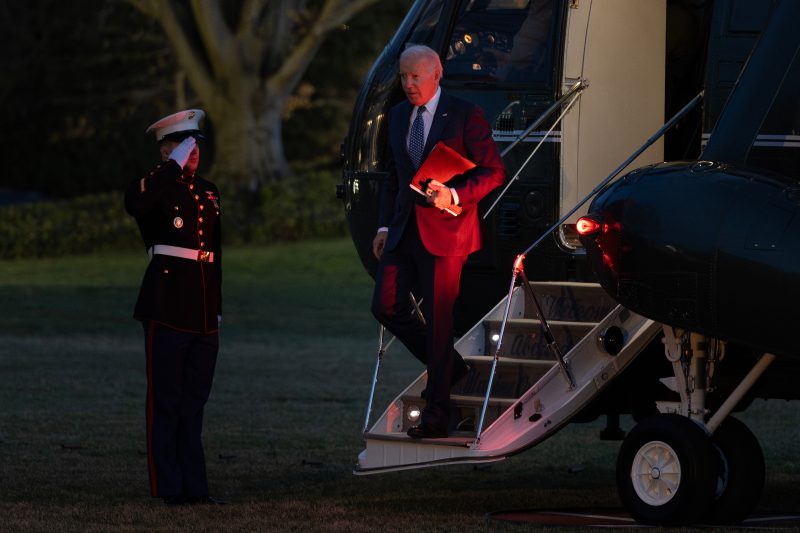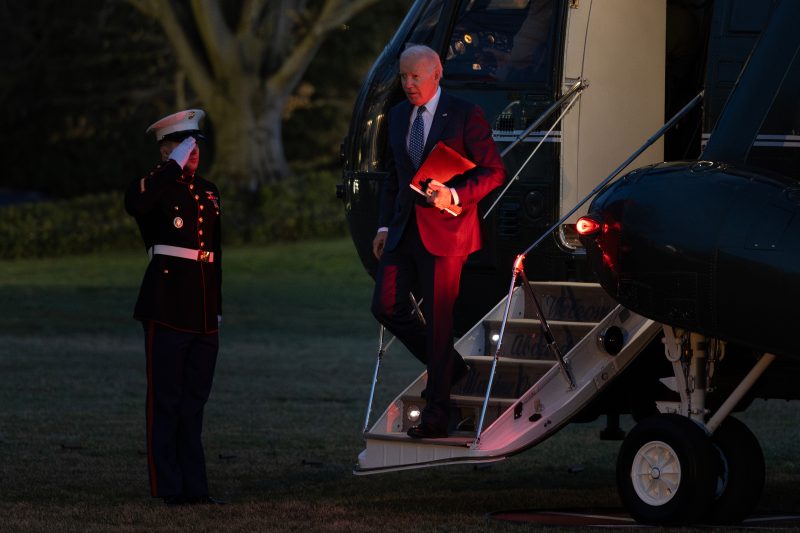
President Biden trusted the ghostwriter behind his two memoirs so much that “at least three times” he read aloud to him passages from journals containing classified details of Obama-era deliberations, according to a special counsel report released Thursday.
Federal investigators last year sought the recordings author Mark Zwonitzer produced during his meetings with Biden around 2016, while they worked together on Biden’s second memoir. But upon learning of the special counsel’s probe in 2023, Zwonitzer deleted the audio files, according to the lengthy report concerning Biden’s handling of classified documents after leaving the Obama White House.
Zwonitzer, who did not respond to requests for comment left by phone and email, told investigators he deleted the files as a routine practice to preserve his client’s privacy. Special counsel Robert K. Hur considered charges against the writer but ultimately decided there wasn’t enough evidence to prove he intentionally tried to obstruct justice.
Hur also did not recommend charges against Biden on Thursday, concluding that the president had carelessly handled classified materials but that the evidence of intent was thin.
Among Hur’s findings was that Biden had “willfully retained and disclosed classified materials to his ghost writer (Zwonitzer) after his vice presidency.” Zwonitzer never held a security clearance, and Biden knew this, the report added. But Hur said the evidence “does not establish Mr. Biden’s guilt beyond a reasonable doubt.”
Biden said at a news conference Thursday that he did not share classified information while working with Zwonitzer. The two men have shared a close relationship for more than a decade.
Biden had long been a fan of Richard Ben Cramer’s widely praised book “What it Takes,” which chronicles the 1988 presidential campaign. So when he sought help with his memoir in 2006, Biden turned to Zwonitzer — Cramer’s researcher and “right-hand man.” As the Obama administration ended, Biden again tapped Zwonitzer to write his second memoir, “Promise Me, Dad.”
Zwonitzer became more of a friend to Biden than political ghostwriter, Politico reported in 2021, going as far as referring to him as the president’s “secret muse.”
The 345-page special counsel report released Thursday details how Biden saved notebooks from his vice presidency and routinely shared the contents with Zwonitzer to aid the memoir-writing process. According to a staffer, Biden wanted to take copies of the notes “so that he didn’t have to go to [the National Archives] every day to help write this book,” the report stated.
Zwonitzer recalled Biden mentioning the need to be careful with the notes due to their possibly classified nature. Meanwhile, Biden would also “read his notes from classified meetings to Zwonitzer nearly word-for-word,” the report stated.
In January 2023, Attorney General Merrick Garland appointed Hur as special counsel after Biden’s aides said they discovered classified materials when they searched the president’s home in Delaware and office in D.C. According to the report, after learning of the special counsel’s appointment, Zwonitzer deleted his audio recordings of conversations with Biden during the process of writing “Promise Me, Dad,” which was published in 2017.
“The recordings had significant evidentiary value,” Hur wrote in the report.
FBI agents contacted Zwonitzer for an interview and for records of his work ghostwriting two of Biden’s memoirs, the report stated. Zwonitzer handed over near-verbatim transcripts and some audio recordings, but when reviewing the documents, investigators noticed that there were some transcripts with no corresponding audio, according to the report. Zwonitzer’s attorneys told authorities that before the FBI contacted the writer, he had deleted some recordings of his conversations with Biden.
The ghostwriter then turned over his computer and hard drive, and consented to a search. The FBI was able to recover the deleted files from a subfolder on the external hard drive labeled “audio.”
“We considered whether to charge the ghostwriter with obstruction of justice, but we believe the evidence would be insufficient to obtain a conviction and therefore declined to prosecute him,” Hur wrote, adding that Zwonitzer offered “plausible, innocent” reasons for his actions. “While the ghostwriter admitted that he deleted the recordings after he learned of the special counsel’s investigation, the evidence falls short of proving beyond a reasonable doubt that he intended to impede an investigation.
Zwonitzer said that when he deleted the recordings, he didn’t think they contained classified information and he didn’t expect the investigation to involve him, according to the report. When he deleted the files after learning of the probe, investigators had not yet contacted him, the report stated.
“I simply took the audio files subfolder from both the G drive and my laptop and slid them into the trash,” he told investigators, according to the report.
Perry Stein and Devlin Barrett contributed to this report.

